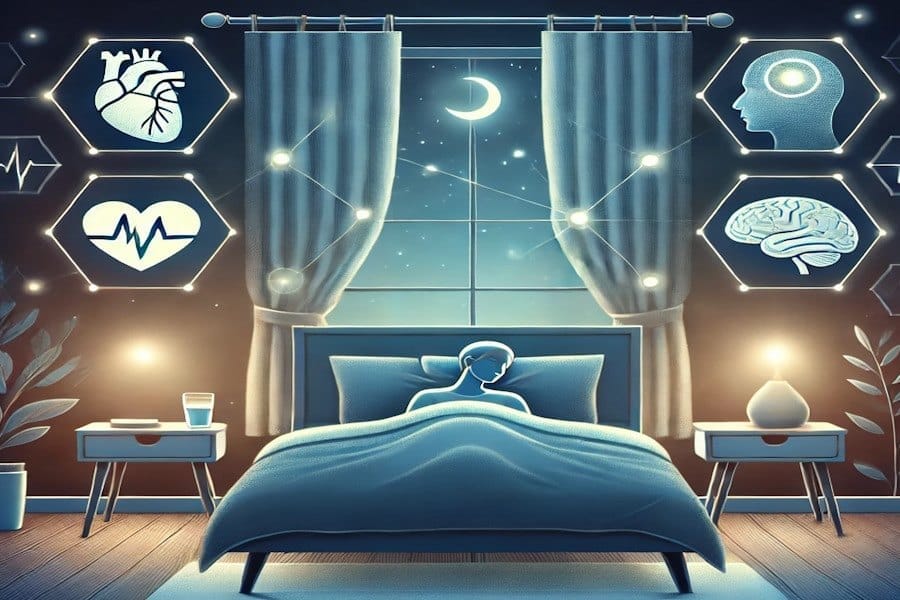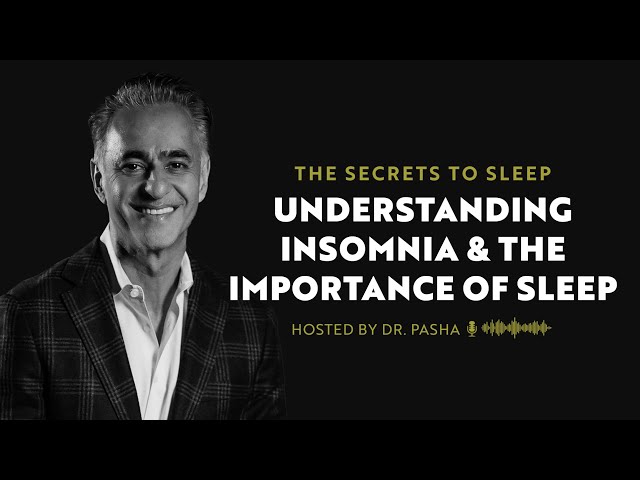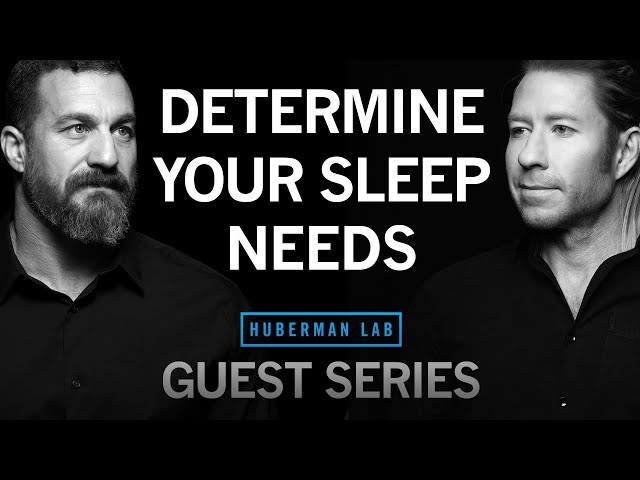Type: Article -> Category: AI Wellbeing
Why Sleep is Essential for a Healthy Body and Mind

Publish Date: Last Updated: 10th November 2025
Author: nick smith- With the help of CHATGPT
Introduction
When you're young, sleep often feels like an inconvenience—something that takes away from the excitement of life. Many of us have experienced periods where sleep was seen as optional, running on minimal rest to maximize work, travel, or social activities. However, as we age, the critical importance of sleep becomes glaringly evident. Sleep is not just downtime; it’s the foundation of physical and mental health.
In this article, we explore why sleep is essential, the profound effects it has on our body and mind, and actionable steps to improve the quality of your sleep.
Videos on YoutTube on the importance of sleep

Study finds importance of sleep regularity
YouTube Channel: CBS New York

The secret to getting better sleep tonight | James Leinhardt | TEDxManchester
YouTube Channel: TEDx Talks

The Secrets to Sleep: Understanding Insomnia & the Importance of Sleep
YouTube Channel: PashaSnoringandSinus

Dr. Matt Walker: The Biology of Sleep & Your Unique Sleep Needs | Huberman Lab Guest Series
YouTube Channel: Andrew Huberman
The Role of Sleep in Healing and Recovery
Physical Recovery
Sleep plays a pivotal role in the body’s ability to repair itself. During deep sleep stages, the body engages in cellular repair, tissue growth, and muscle recovery. This is why animals, including humans, instinctively sleep more when recovering from illness or injury. Research shows that growth hormone levels peak during sleep, promoting repair processes that are crucial for recovery.
For athletes, quality sleep is non-negotiable. A study published in the Journal of Sports Sciences found that sleep deprivation led to decreased performance, slower recovery times, and a higher risk of injury.
Mental Restoration
Sleep is not just about physical repair—it is a lifeline for mental health. Chronic sleep deprivation has been linked to cognitive decline, memory problems, and mood disorders. Severe sleep deprivation can even lead to psychosis and hallucinations, as the brain struggles to process reality without adequate rest.
Studies have also shown that prolonged lack of sleep increases the risk of developing depression, anxiety, and even dementia. According to the National Institutes of Health (NIH), poor sleep disrupts the brain’s ability to clear toxins, including beta-amyloid—a protein linked to Alzheimer’s disease.
The Challenges of Sleep in a 24/7 World
Modern life is full of distractions and demands, making sleep seem like a luxury rather than a necessity. The rise of smartphones, 24-hour entertainment, and demanding work schedules has created a culture of sleeplessness. For many, falling asleep requires deliberate preparation, much like any other important activity.
Practical Tips for Better Sleep
1. Cut Out Stimulants
Caffeine and nicotine can disrupt your sleep cycle, even hours after consumption. Avoid stimulants at least 4-6 hours before bedtime to ensure restful sleep.
2. Create a Positive Sleep Mindset
View sleep as an opportunity to recharge and heal, rather than a chore. This shift in mindset can make sleep more inviting and less stressful.
3. Eliminate Light Pollution
Light, especially blue light from electronic devices, can interfere with your body’s production of melatonin—the hormone responsible for sleep. Use blackout curtains and eliminate glowing devices in your room.
4. Establish a Pre-Bed Routine
Spend the hour before bed unwinding. Listen to calming music, meditate, or journal your thoughts. Avoid work or anything that might provoke stress.
5. Stay Hydrated
Keep a glass of water by your bed to prevent dehydration, which can cause restlessness or frequent waking.
6. Invest in Comfort
An uncomfortable mattress or pillow can lead to poor sleep and physical discomfort. Treat yourself to a quality bed—it’s an investment in your health.
7. Record Your Dreams
Keeping a journal by your bedside allows you to document your dreams, which can be a window into your subconscious mind and provide insight into unresolved stressors.
Helpful Videos on Sleep

Study finds importance of sleep regularity
YouTube Channel: CBS New York

The Secrets to Sleep: Understanding Insomnia & the Importance of Sleep
YouTube Channel: PashaSnoringandSinus

Dr. Matt Walker: The Biology of Sleep & Your Unique Sleep Needs | Huberman Lab Guest Series
YouTube Channel: Andrew Huberman

How Sleep Powers Muscle Growth
YouTube Channel: Institute of Human Anatomy
The Dangers of Chronic Sleep Deprivation
Long-term sleep deprivation has been linked to serious health risks, including:
- Cognitive Impairment: Difficulty concentrating, poor memory, and slower reaction times.
- Heart Disease: Increased risk of hypertension, heart attacks, and strokes.
- Obesity: Disrupted sleep affects hormones that regulate hunger, leading to weight gain.
- Mental Health Issues: Sleep disorders can trigger or exacerbate anxiety, depression, and other mental health conditions.
The World Health Organization (WHO) has classified shift work involving sleep disruption as a possible carcinogen due to its effects on the body’s circadian rhythms.
Listening to Your Body
Sleep needs vary from person to person. While some may thrive on 6 hours of sleep, others might require 9 or more. The key is to tune into your body’s signals and give it the rest it needs. Forced adherence to a specific schedule can backfire, leading to stress and anxiety around sleep.
Seek Help When Needed
Persistent sleep issues should never be ignored. If you struggle with insomnia, frequent waking, or other sleep disturbances, consult a healthcare professional. Sleep disorders like sleep apnea or restless leg syndrome may require medical intervention.
Conclusion
Sleep is not a luxury; it’s a necessity for a healthy, balanced life. It’s the time your body and mind need to recharge, repair, and reflect. By prioritizing sleep and adopting habits that promote better rest, you can improve your physical health, mental clarity, and overall quality of life.
Latest AI Articles
AI Questions and Answers section for Why Sleep is Essential for a Healthy Body and Mind
Welcome to a new feature where you can interact with our AI called Jeannie. You can ask her anything relating to this article. If this feature is available, you should see a small genie lamp above this text. Click on the lamp to start a chat or view the following questions that Jeannie has answered relating to Why Sleep is Essential for a Healthy Body and Mind.
Be the first to ask our Jeannie AI a question about this article
Look for the gold latern at the bottom right of your screen and click on it to enable Jeannie AI Chat.
Type: Article -> Category: AI Wellbeing









